Juneteenth is more than a holiday—it’s a celebration of freedom, survival, and joy in Black American communities.
Food plays a central role in honoring that legacy, with each dish carrying a story, a memory, or a link to the African diaspora. These meals weren’t just chosen for flavor—they symbolize resistance, resourcefulness, and heritage passed down across generations.
Here are 15 traditional Juneteenth dishes, each with deep roots and rich meaning.
1. Red Velvet Cake

Its deep crimson crumb isn’t just eye-catching—it symbolizes the bloodshed of enslaved ancestors and the resilience of those who came after. Red foods are a powerful Juneteenth tradition, rooted in West African spiritual practices that connect red to strength and transformation.
Made with buttermilk and a touch of cocoa, red velvet’s tangy richness is capped with cream cheese frosting. It’s more than a dessert—it’s a sweet act of remembrance.
2. Barbecue Ribs
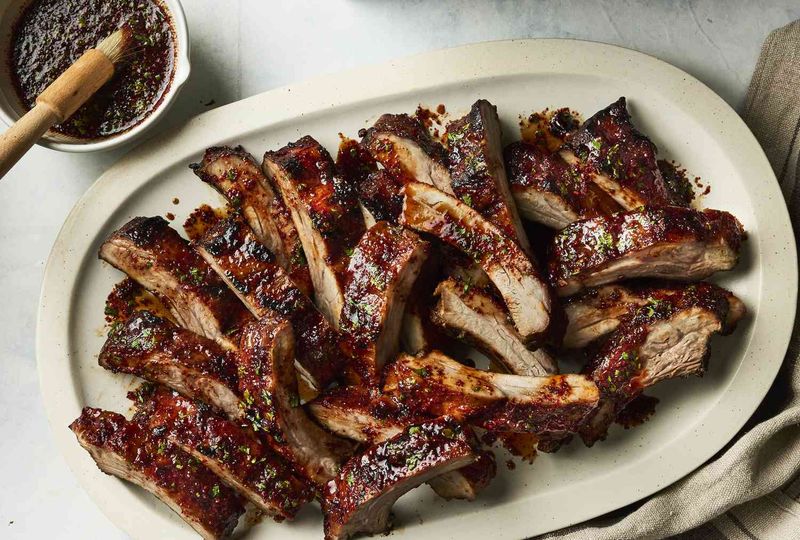
Long before backyard cookouts, communal outdoor cooking was a cornerstone of Black Southern life. Smoking ribs low and slow over open flames became a way to gather, celebrate, and feed many with care.
Barbecue at Juneteenth is more than food—it’s a tradition of fellowship and fire. The scent of ribs on the grill is a signal that the celebration has begun.
3. Fried Chicken

With roots stretching to West Africa and adapted through Southern hardship, fried chicken represents ingenuity and flavor born from necessity. Crispy, seasoned, and golden, it became a staple at family gatherings and Sunday suppers.
On Juneteenth, it’s a symbol of home and heritage. Often served cold at picnics or hot from the skillet, it brings everyone to the table.
4. Collard Greens
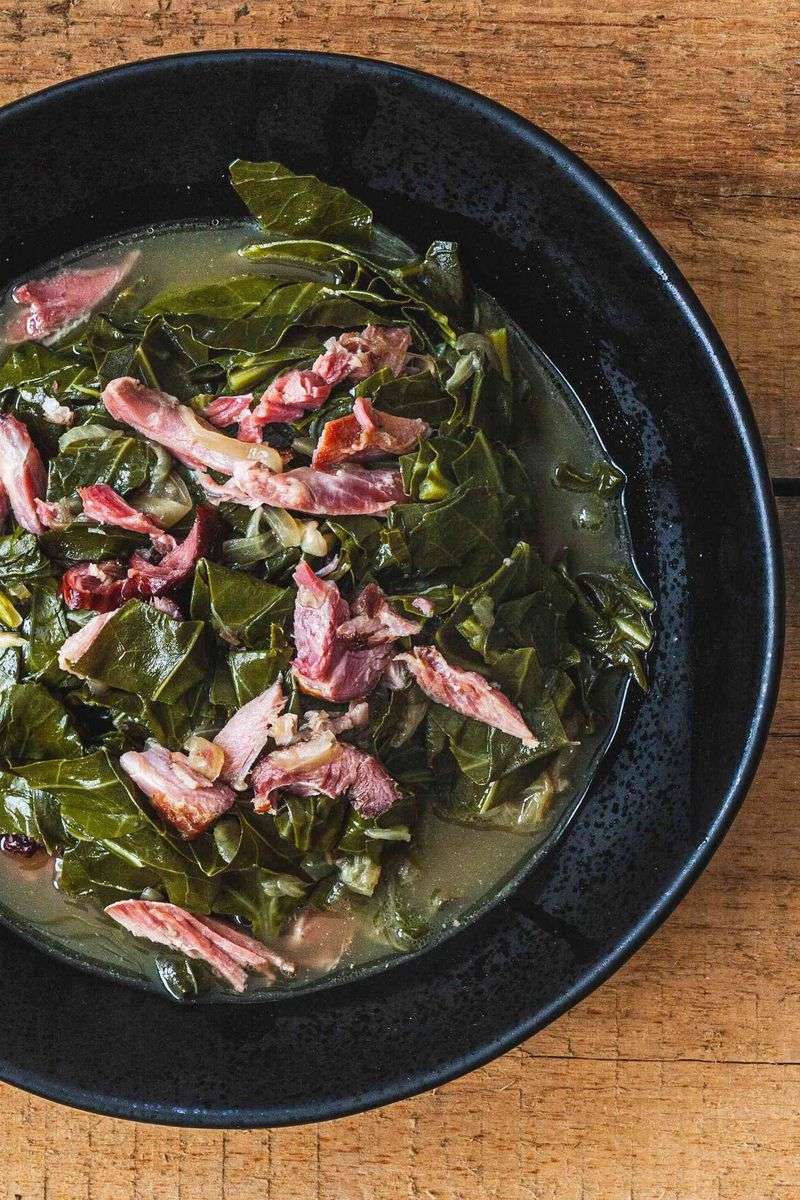
Dark green leaves simmered slowly with smoked meat carry more than flavor—they represent wealth and prosperity in Southern Black culture. The tradition of cooking greens with care and patience honors ancestral practices.
Passed down through generations, a pot of collards on the stove signals love, abundance, and a connection to the past.
5. Cornbread
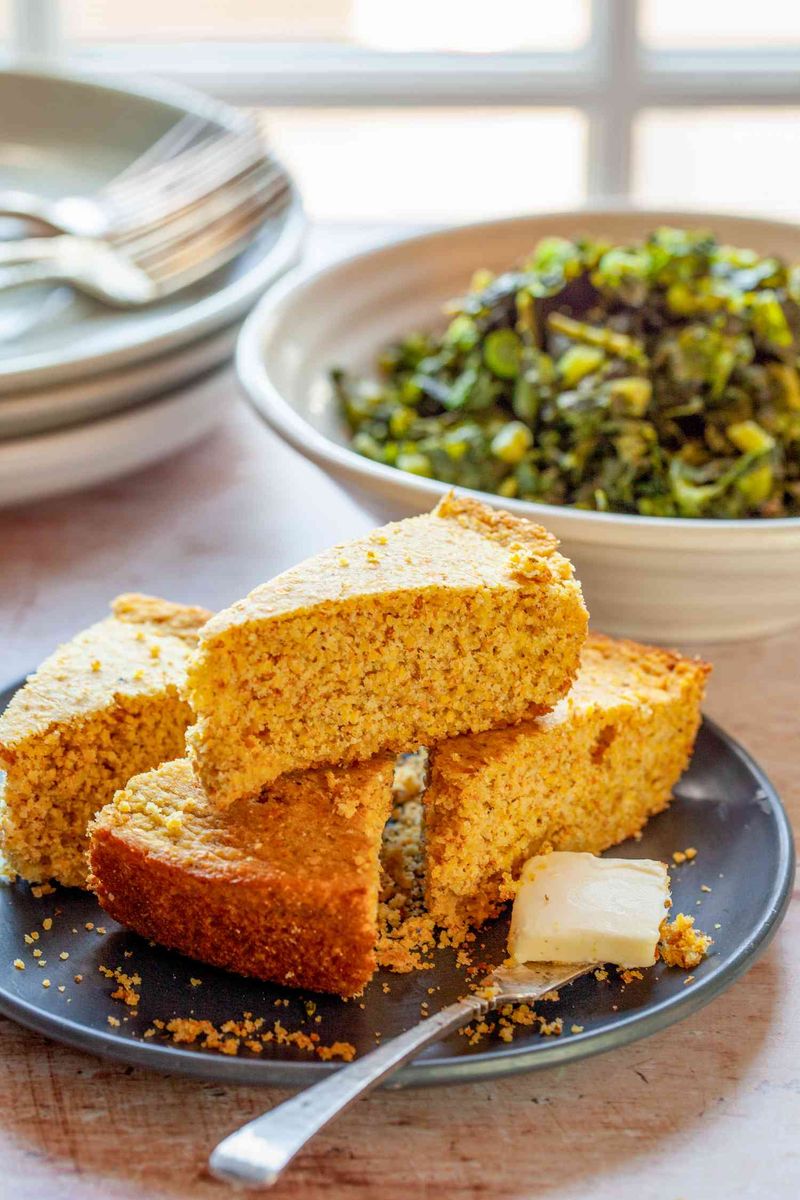
Made from ground cornmeal, cornbread is a survivor’s dish—born of limited ingredients and centuries of adaptation. It fed enslaved people when wheat flour was scarce and became a cornerstone of Southern Black cuisine.
At Juneteenth, its golden color symbolizes hope and resourcefulness. Whether sweet or savory, skillet-baked or muffin-shaped, it’s a reminder of nourishment through struggle.
6. Watermelon
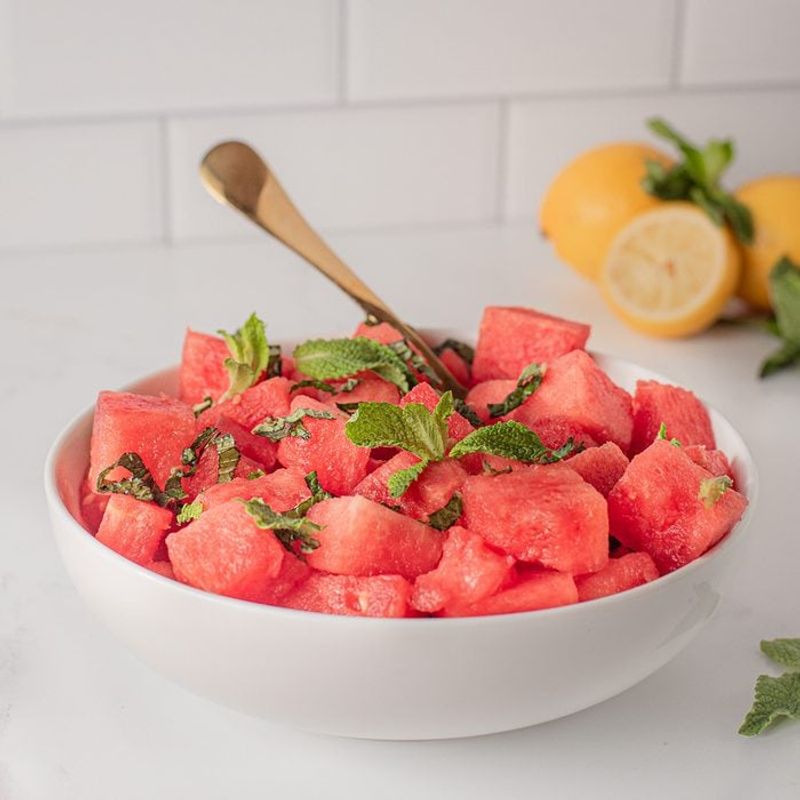
More than a refreshing fruit, watermelon was a crop cultivated by freed slaves after Emancipation—both for survival and for sale. It became a symbol of Black independence and self-sufficiency.
Later distorted by racist caricatures, its presence at Juneteenth now reflects reclamation. Eating watermelon with pride is a quiet, joyful act of resistance.
7. Hot Links (Spicy Sausages)

These peppery sausages have been grilling at Southern gatherings for generations, their smoke mingling with laughter and music. The heat reflects bold flavor and fearless celebration.
Juneteenth cookouts often feature hot links alongside ribs and chicken. Their snap, spice, and sizzle make them a cookout essential.
8. Black-Eyed Peas
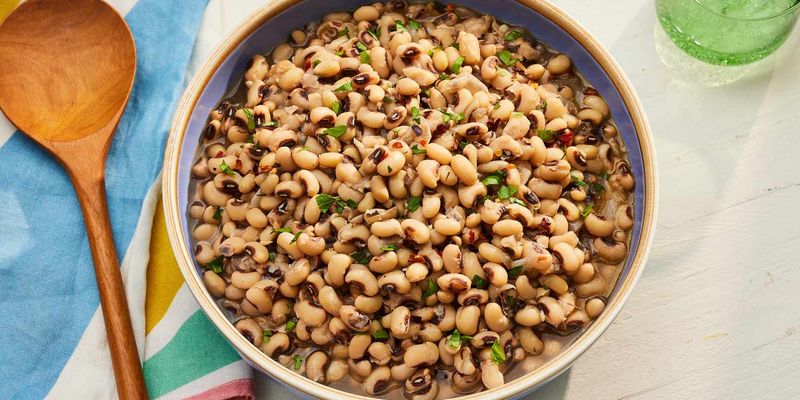
Cooked with onions, garlic, or pork, black-eyed peas have long symbolized good luck and prosperity, especially in Southern New Year’s dishes. Their origin traces back to West Africa.
On Juneteenth, they remind people of hope and endurance. Served in stews or alongside rice, they’re humble but powerful on the plate.
9. Sweet Potato Pie

Enslaved Africans used what they had—and sweet potatoes were plentiful, becoming a Southern staple. The pie evolved from West African yam dishes into a deeply rooted Black American dessert.
With nutmeg, cinnamon, and a flaky crust, this pie shows up for every major celebration. Its warmth and sweetness feel like coming home.
10. Red Drink (Hibiscus Tea Or Strawberry Soda)

Bright red beverages are a Juneteenth essential, symbolizing life, blood, and resilience. Sorrel, made from hibiscus petals, came to the Americas through the transatlantic slave trade.
Strawberry soda, a later American addition, carries the same color symbolism. Both drinks cool the body while warming the spirit with heritage.
11. Macaroni And Cheese
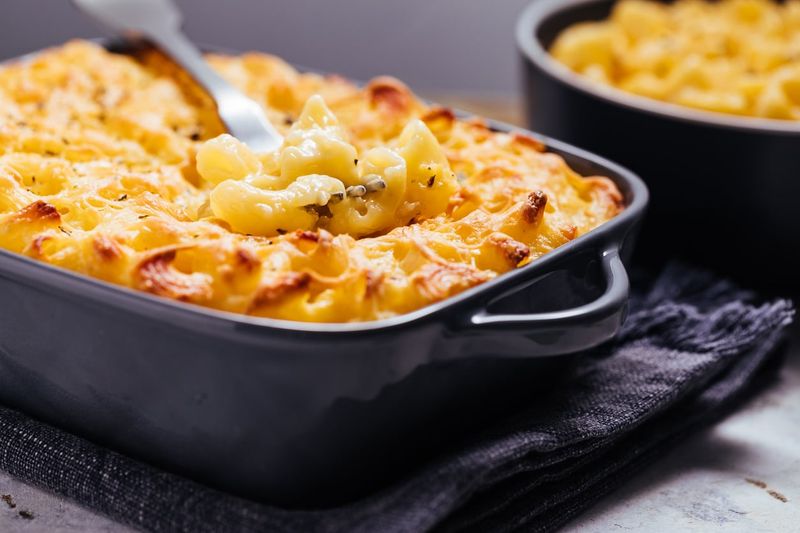
Elbow macaroni baked in layers of sharp cheddar and creamy sauce, often with a crunchy crust—mac and cheese became a soul food mainstay through generations of adaptation.
On Juneteenth, it’s a must-have comfort dish. Rich, filling, and golden, it celebrates abundance and Black culinary excellence.
12. Okra Stew
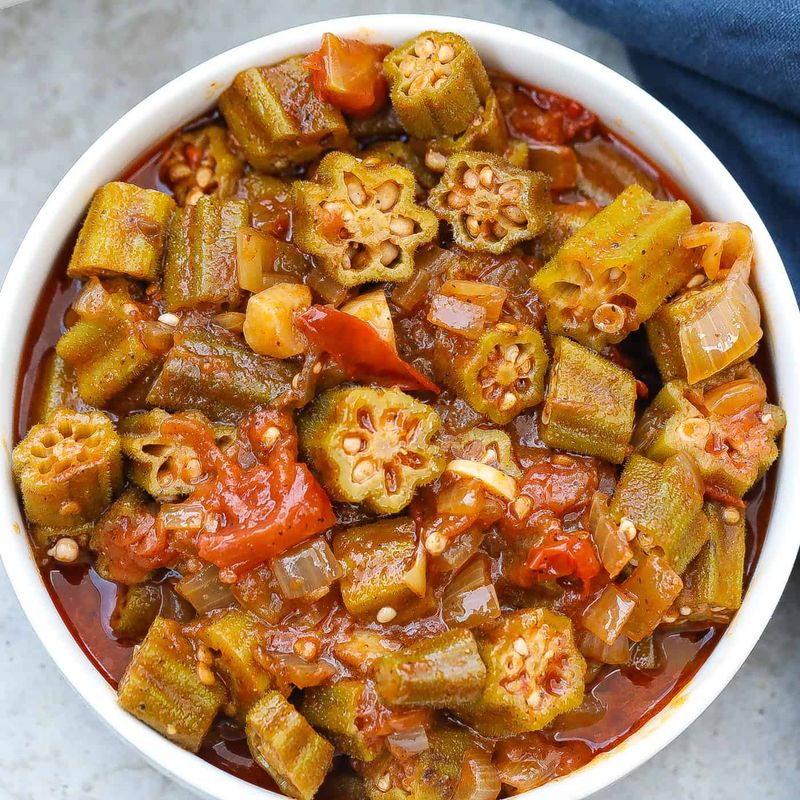
Known as gumbo in some regions, okra stew is a direct tie to West African traditions. Okra, or “kingombo,” came over with enslaved people and became a base for countless Southern dishes.
Simmered with tomatoes, spices, and sometimes meat, it’s earthy, nourishing, and deeply rooted in ancestral cooking.
13. Candied Yams
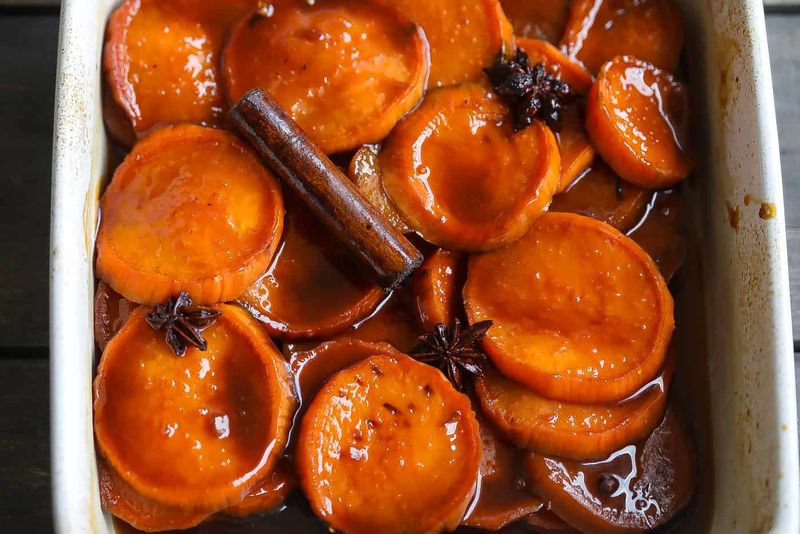
Orange-fleshed sweet potatoes baked with sugar, cinnamon, and butter are more than sweet—they represent legacy. These yams recall African yam traditions transformed in Southern kitchens.
At Juneteenth, their caramelized edges and silky interior feel ceremonial. They’re often made using recipes whispered from one generation to the next.
14. Deviled Eggs

Popular at church picnics and family reunions, deviled eggs are easy to share and always welcome. Their creamy centers spiked with mustard and spice make them a party table favorite.
Though less symbolic, they represent togetherness—finger food that brings people back for seconds. No Juneteenth picnic is complete without them.
15. Peach Cobbler
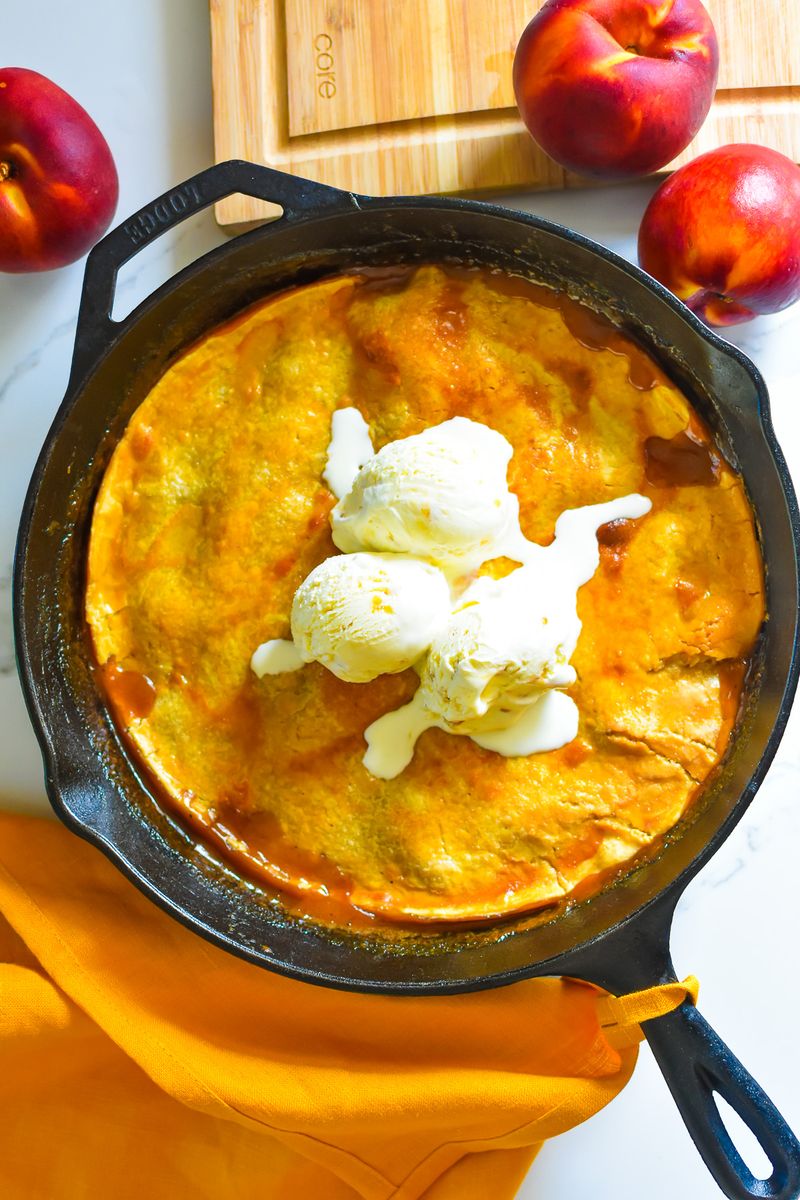
With roots in Southern improvisation, cobblers were made when traditional pie ingredients weren’t available. Peaches, sweet and plentiful, became a favored fruit.
The bubbling fruit and flaky topping of peach cobbler speak to sweetness born from scarcity. It’s a celebration of making something beautiful from what you have.

